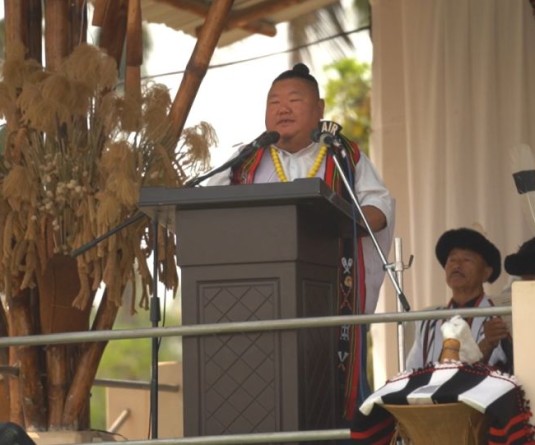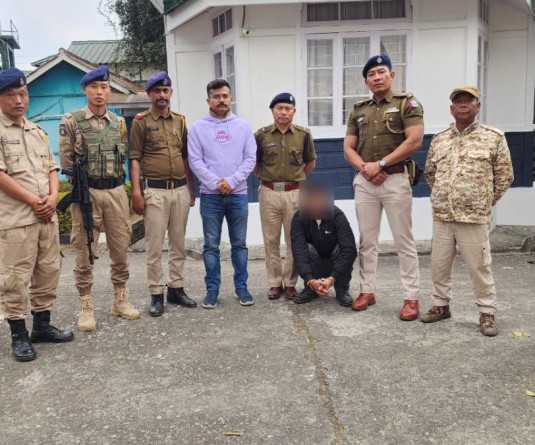
Kohima, September 13 (The Telegraph): The people of four underdeveloped districts in Nagaland have demanded a separate state.
In what could have wider political ramifications, former general secretary of the Eastern Nagaland People’s Organization and currently president of the Chang Hoho, Lemba Chang, told this correspondent on September 12 that gauging the mood of the inhabitants of Tuensang, Longleng, Kiphire and Mon districts, the organization had recently passed a resolution during its executive meeting at Tuensang, demanding separate statehood.
Chang Hoho is an apex body of the Chang tribe. The organizations and hohos from the four districts had severed ties with all mainstream Naga organizations a couple of years back. Chang said the idea of a separate state for the four underdeveloped districts inhabited by Chang, Konyak, Sangtam, Khiamniungan, Yimchungru and Phom communities, was mooted in 2007.
He said the decision to demand a separate state was aimed to facilitate economic development in the four districts, ruing that the Nagaland government had failed to develop the four districts up to the people’s expectations. He, however, said this process would not affect or contradict the larger Naga political issue which is still pending with the Centre.
“Without contradicting the Naga political issue, we want to go our own way for speedy development of our area,” Chang said. He said the people of eastern Nagaland were not walking away from the key Naga political issues. “We are not diverting from the Naga political issue,” he said and “therefore this should not impede the Naga political issue”. He said the statehood demand had been pending for a long time.
Chang said the four districts were lagging behind the mainstream on the development front and that was why the people wanted a separate state for speedy development to catch up with the rest of the Naga people. “We have passed a resolution in principle to demand a separate state,” Chang said adding that the Hohos of the four districts had been entrusted with convincing the people by organizing a signature campaign.
He was particularly unhappy with the reservation policy of the state government. He said 33 per cent job reservation for the four districts was being shared with other backward indigenous communities in Nagaland. After negotiation with the people of four districts, the government has allotted 25 per cent job reservation for them and 8 per cent for the backward indigenous communities of other districts.
He said the Nagaland government had denied many opportunities to the people of four districts. “The Nagaland government does not give full satisfaction to the people of eastern Nagaland,” he claimed.






